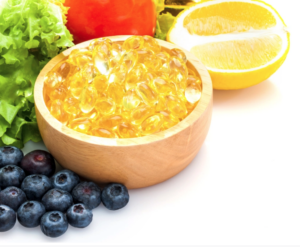
As we get older, memory declines. It happens to all of us, but in some it is worse depending on heredity and other factors. There’s lots of research being done on this subject because we’re all interested!
Television is filled with advertisements for dietary supplements to boost your brainpower and improve your memory. I’ve discussed these with experts in neurology and none of them believes these products live up to their hype. So, what else can we do to improve our memory?
Jingduan Yang, M.D., writing in The Epoch Times, tells us of four essential nutrients that can help protect our brains from deterioration in cognitive function. The hippocampus, which plays a central role in learning and memory, naturally deteriorates with age. But these essential nutrients can help prevent this deterioration and effectively improve cognitive function.
Before we discuss these nutrients, it is helpful to understand the functions of the hippocampus. We have two of them, left and right, and they have several key functions:
- Processing and storing new information: The hippocampus helps the brain encode and store new information as memories, making it essential for learning.
- Consolidating and forming memories: The hippocampus consolidates fragmented memories into the brain’s memory system. It is crucial in converting short-term memories into long-term ones, thereby solidifying memory content.
- Processing spatial memory: The hippocampus is essential for remembering our surroundings and creating cognitive maps.
- Processing episodic memory: The hippocampus processes and stores episodic memories, which include our daily personal experiences with specific details about time, place, and events.
Damage to the hippocampus leads to short-term memory impairment, affecting the brain’s ability to learn and retain new information. Many people first notice a decline in memory when they begin experiencing difficulties with recent memories. Additionally, hippocampal damage can result in memory loss, either partial or complete, such as forgetting personal experiences from the past. It can also weaken spatial navigation skills and the ability to remember familiar environments.
These are the helpful nutrients:
- Omega-3 fatty acids – Studies have shown that consuming omega-3 fatty acids through diet and supplements can help maintain cognitive function and prevent Alzheimer’s disease.
- Antioxidants – Antioxidants, found in various food and certain supplements, can help protect the hippocampus from oxidative damage.
- Vitamin B12 – Research has established a link between vitamin B12 deficiency and cognitive impairment, as well as hippocampal atrophy. Clinical tests have suggested that supplementing with vitamin B12 can improve cognitive function in patients with B12 deficiency, at least in the short term.
- Curcumin – Curcumin has anti-inflammatory and neuroprotective properties that benefit the hippocampus. A comparative study found that curcumin supplementation can significantly delay the progression of Alzheimer’s disease and improve both locomotion (like walking and running) and cognitive functions associated with dementia.
These nutrients are not intended to reverse changes in the hippocampus in those who have already shown deterioration, but they may protect against damage before it happens. For those who have more advanced cases of memory loss, there are new drugs that offer hope in this devastating disease. For more on these drugs, see my earlier post Alzheimer’s Drug Progress.

